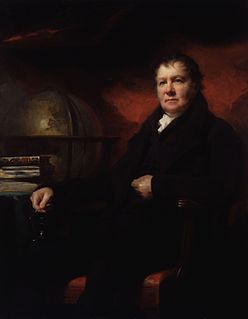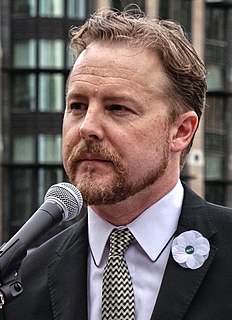A Quote by William Blackstone
Of crimes injurious to the persons of private subjects, the most principal and important is the offense of taking away that life, which is the immediate gift of the great creator; and which therefore no man can be entitled to deprive himself or another of, but in some manner either expressly commanded in, or evidently deducible from, those laws which the creator has given us; the divine laws, I mean, of either nature or revelation.
Related Quotes
The laws of Nature, that is to say the laws of God, plainly made every human being a law unto himself, we must steadfastly refuse to obey those laws, and we must as steadfastly stand by the conventions which ignore them, since the statutes furnish us peace, fairly good government, and stability, and therefore are better for us than the laws of God, which would soon plunge us into confusion and disorder and anarchy if we should adopt them.
For they have always unanimously maintained that nature, rather the Creator Himself, has given man the right of private ownership not only that individuals may be able to provide for themselves and their families but also that the goods which the Creator destined for the entire family of mankind may through this institution truly serve this purpose.
How shall we define occultism? The word is derived from the Latin occultus, hidden; so that it is the study of the hidden laws of nature. Since all the great laws of nature are in fact working in the invisible world far more than in the visible, occultism involves the acceptance of a much wider view of nature than that which is ordinarily taken. The occultist, then, is a man who studies all the laws of nature that he can reach or of which he can hear, and as a result of his study he identifies himself with these laws and devotes his life to the service of evolution.
The concept of guilt is found most powerfully developed even in the most primitive communal forms which we know... the man is guilty who violates one of the original laws which dominate the society and which are mostly derived from a divine founder; the boy who is accepted into the tribal community and learns its laws, which bind him thenceforth, learns to promise; this promise is often given under the sign of death, which is symbolically carried out on the boy, with a symbolical rebirth.
The Author of nature has not given laws to the universe, which, like the institutions of men, carry in themselves the elements of their own destruction; he has not permitted in his works any symptom of infancy or of old age, or any sign by which we may estimate either their future or their past duration. He may put an end, as he no doubt gave a beginning, to the present system at some determinate period of time; but we may rest assured, that this great catastrophe will not be brought about by the laws now existing, and that it is not indicated by any thing which we perceive.
Those rights, then, which God and nature have established, and are therefore called natural rights, such as life and liberty, need not the aid of human laws to be more effectually invested in every man than they are; neither do they receive any additional strength when declared by the municipal laws to be inviolate. On the contrary, no human legislature has power to abridge or destroy them, unless the owner shall himself commit some act that amounts to a forfeiture.
It is our duty to endeavor always to promote the general good; to do to all as we would be willing to be done by were we in their circumstances; to do justly, to love mercy, and to walk humbly before God. These are some of the laws of nature which every man in the world is bound to observe, and which whoever violates exposes himself to the resentment of mankind, the lashes of his own conscience, and the judgment of Heaven. This plainly shows that the highest state of liberty subjects us to the law of nature and the government of God.
In my understanding of God I start with certain firm beliefs. One is that the laws of nature are not broken. We do not, of course, know all these laws yet, but I believe that such laws exist. I do not, therefore, believe in the literal truth of some miracles which are featured in the Christian Scriptures, such as the Virgin Birth or water into wine. ... God works, I believe, within natural laws, and, according to natural laws, these things happen.
The only distinction between freedom and slavery consists in this: In the former state a man is governed by the laws to which he has given his consent, either in person or by his representative; in the latter, he is governed by the will of another. In the one case, his life and property are his own; in the other, they depend upon the pleasure of his master. It is easy to discern which of these two states is preferable.
And it is undeniably true that the greatest and most important right of a British subject is that he shall be governed by no laws but those to which he, either in person or by his representatives, hath given his consent; and this, I will venture to assert, is the great basis of British freedom; it is interwoven with the Constitution, and whenever this is lost, the Constitution must be destroyed.
Is a Christian- one who communicates daily with the Creator- to divorce himself from the things God created and intended man to have, and which demonstrate the fact that man has been made in the image of God? In other words, are we who have been made in the image of our creator to be less creative than those who do not know the Creator? The Christian should have more vividly expressed creativity in his daily life.
For Calvin, the creation reflects its Creator at every point. Image after images flashed in front of our eyes, as Calvin attempts to convey the multiplicity of ways in which the creation witnesses to its Creator: it is like a visible garment, which the invisible God dons in order to make himself known; it is like a book in which the name on the Creator is written as its author; it is like a theater, in which the glory of God is publicly displayed; it is like a mirror, in which the works and wisdom of God are reflected.

































